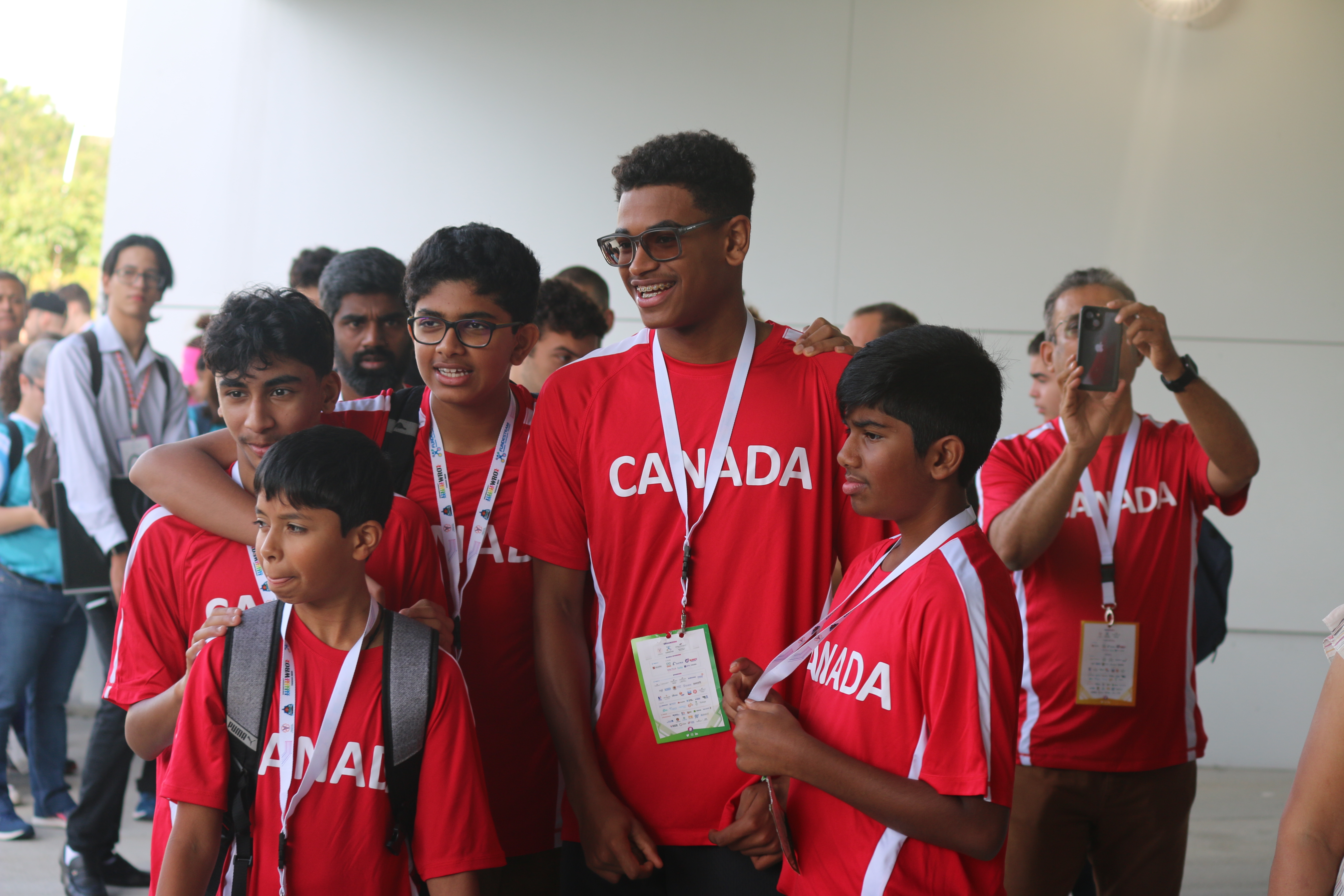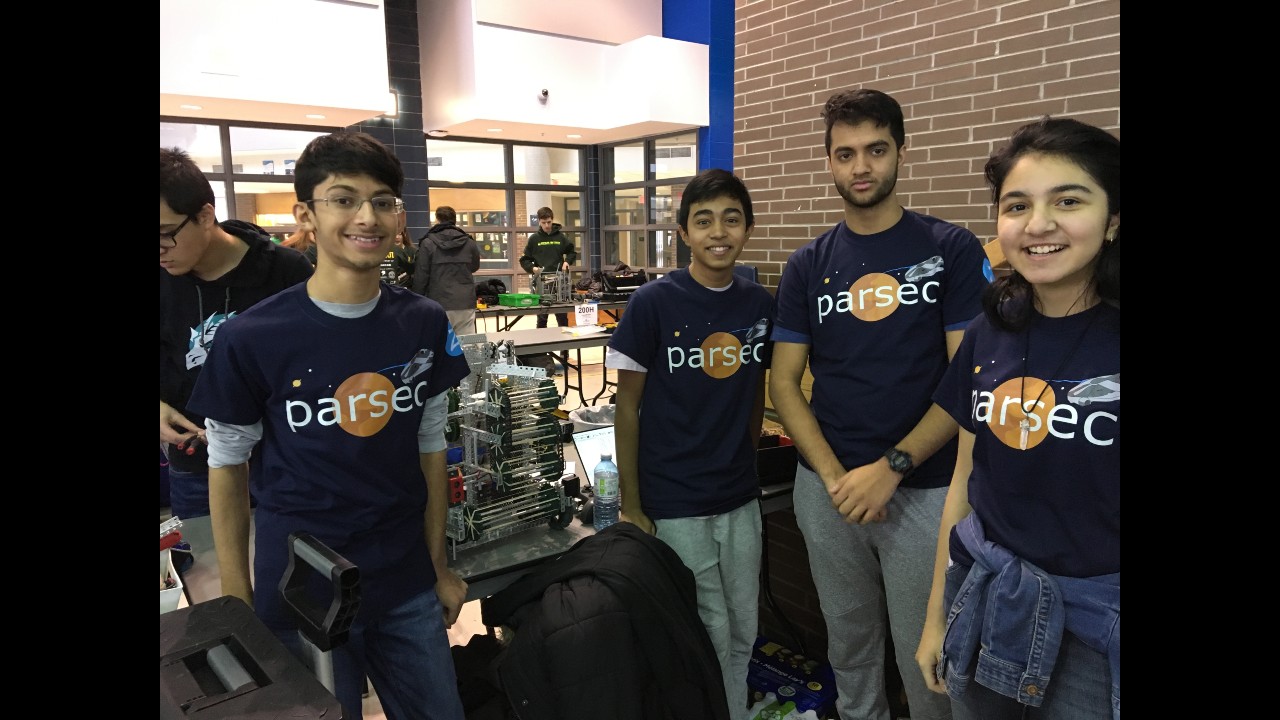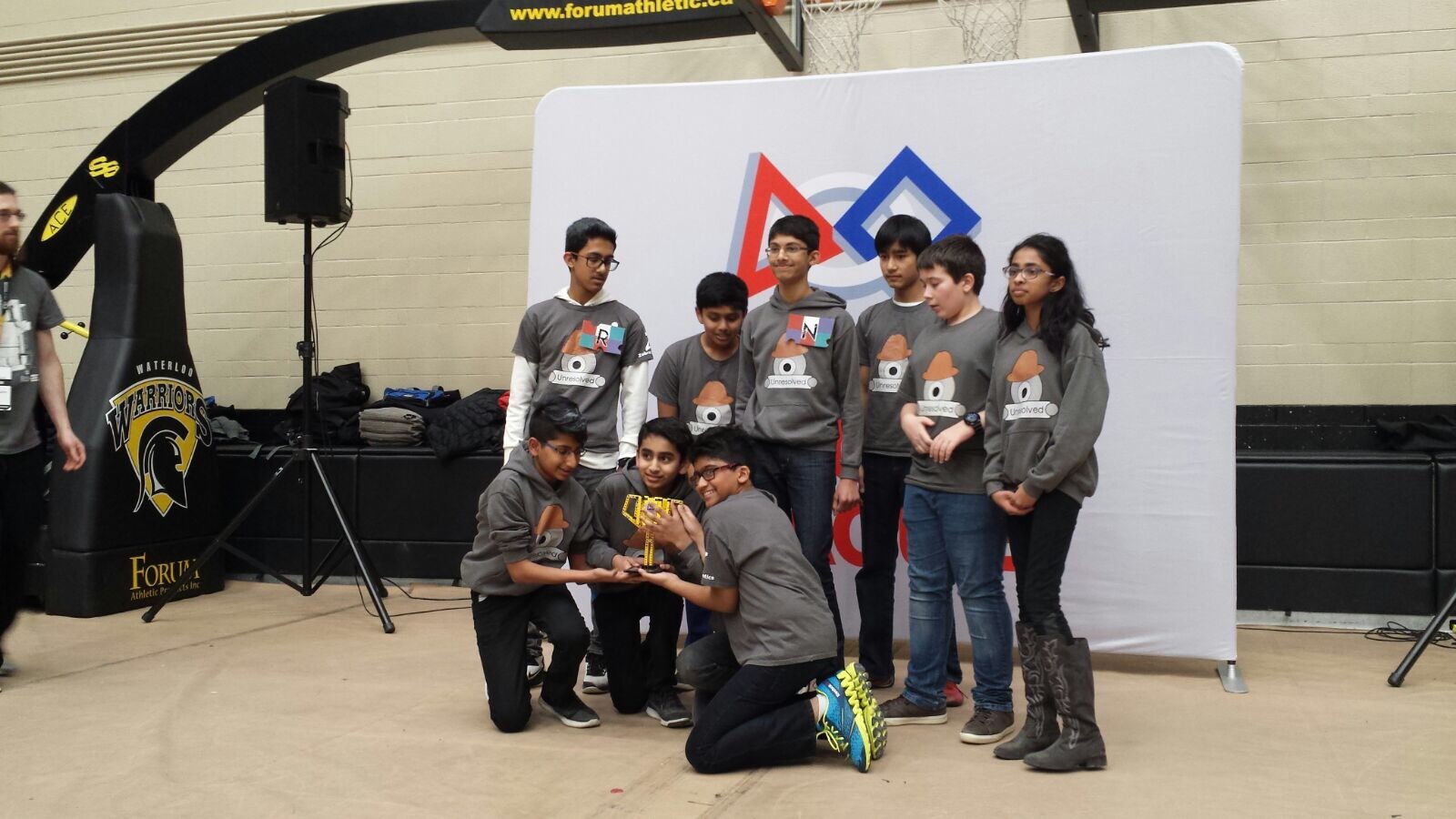Months. It had been months of tweaking, tinkering, and labouring over their various robots in preparation for the World Robotic Olympiad (WRO) Internationals. The students would come in whenever they had the time to spare between school and clubs. They worked weeknights and weekends on their projects, readying themselves for the challenge ahead. But as November 7-9 approached, they finally felt ready to represent Canada on the world stage.
As the competition date approached, they traveled down by plane to Panama City, anticipating stiff competition. They pulled into their hotels and began tinkering and tweaking some more. Their families were behind them. Canada was behind them. Zebra Robotics was behind them. They were ready to perform.
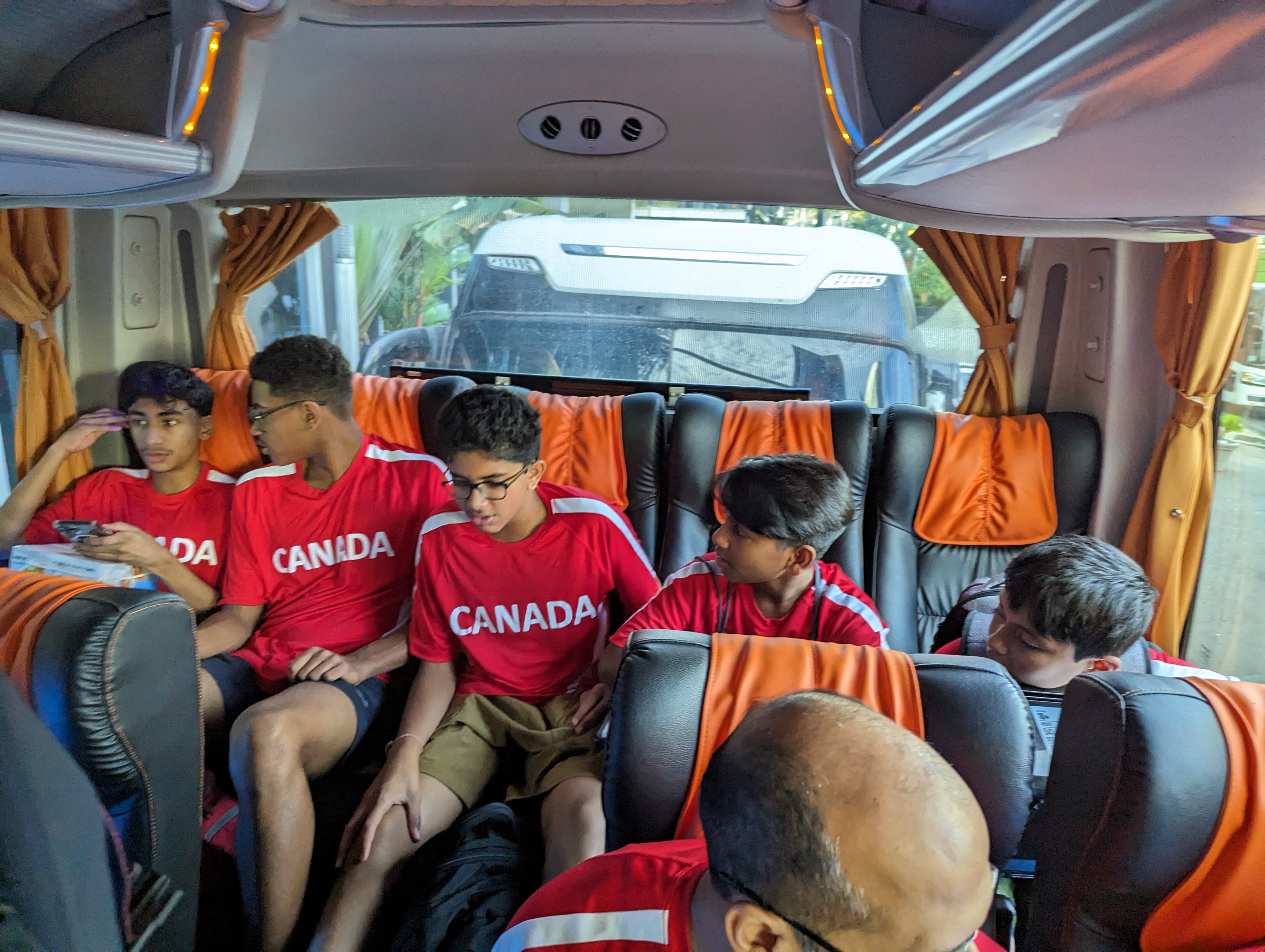
The WRO stage was electric. Teams from all over the world were primed, ready to show off the skills they’d worked so very hard on. The first up were the RoboMission competitors. This was our team’s first WRO International and they were grade 8 competitors in a sea of high schoolers. But the team wasn’t discouraged. They did some final tweaks, then set their robot to work on this year’s themed challenges. After a hard-fought battle, they were defeated. But our RoboMission team took it in stride and have learned from the experience. Nimbler designs, tighter programming, and an anticipatory mindset can be expected for next year, when they rise to the challenge again.
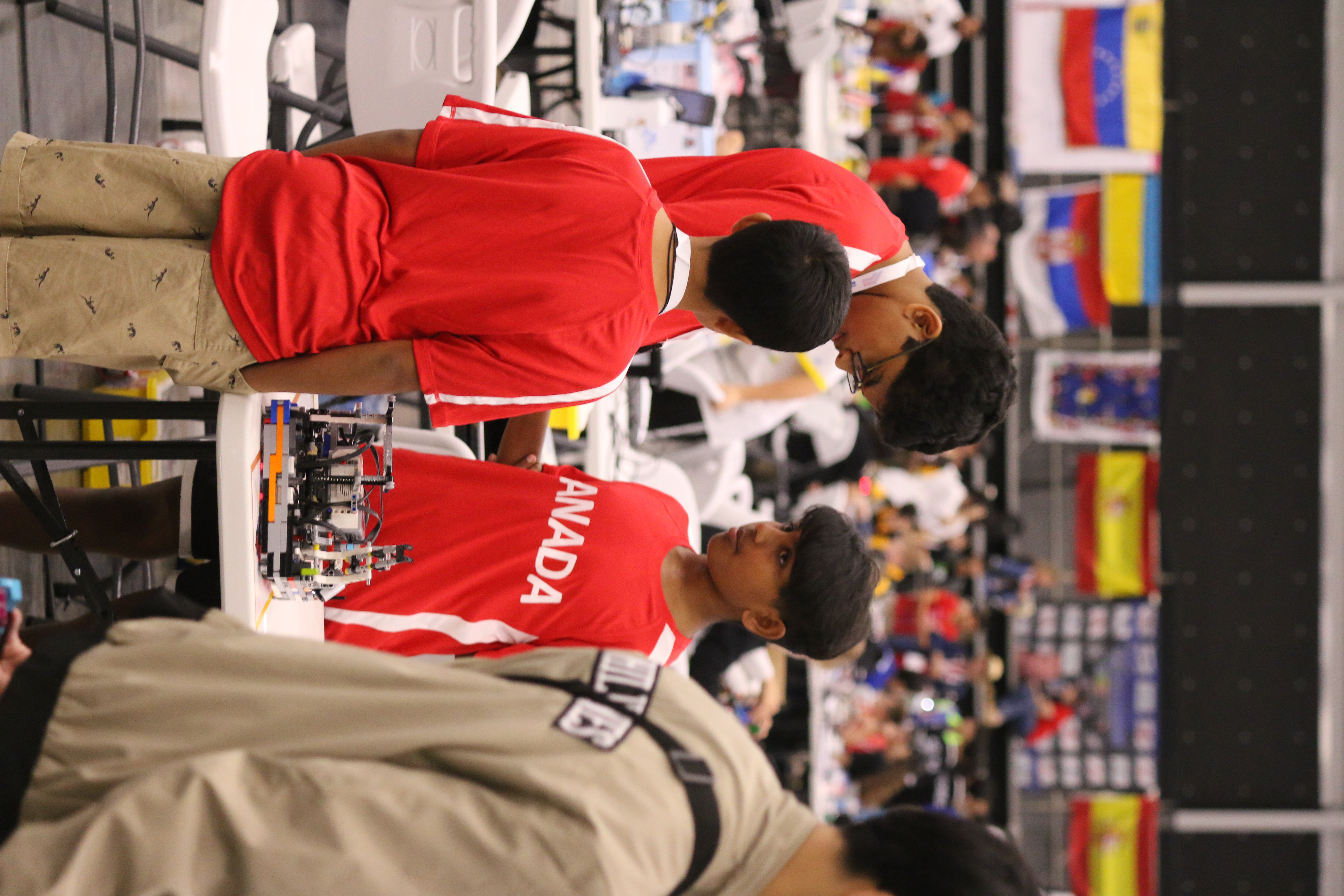
RoboSports were up next. Like the RoboMission team, they had never experienced a WRO International before. They too were also among the youngest in the category, going against university and college level students. With some final tweaks, they finely tuned their robot. The game? Table tennis. Throughout the first day, they were nigh unstoppable. They won match after match, carving out a 3-0 lead by the afternoon. But, as with RoboMission, experience tipped the scales more than expected. By day two, our RoboSports team fell behind, beaten back by more experienced teams. Placing 30th, they were proud to have made it that far. They felt that they had learned a lot from the experience and took notes on the losses they had so that they could come back next year, stronger than ever.
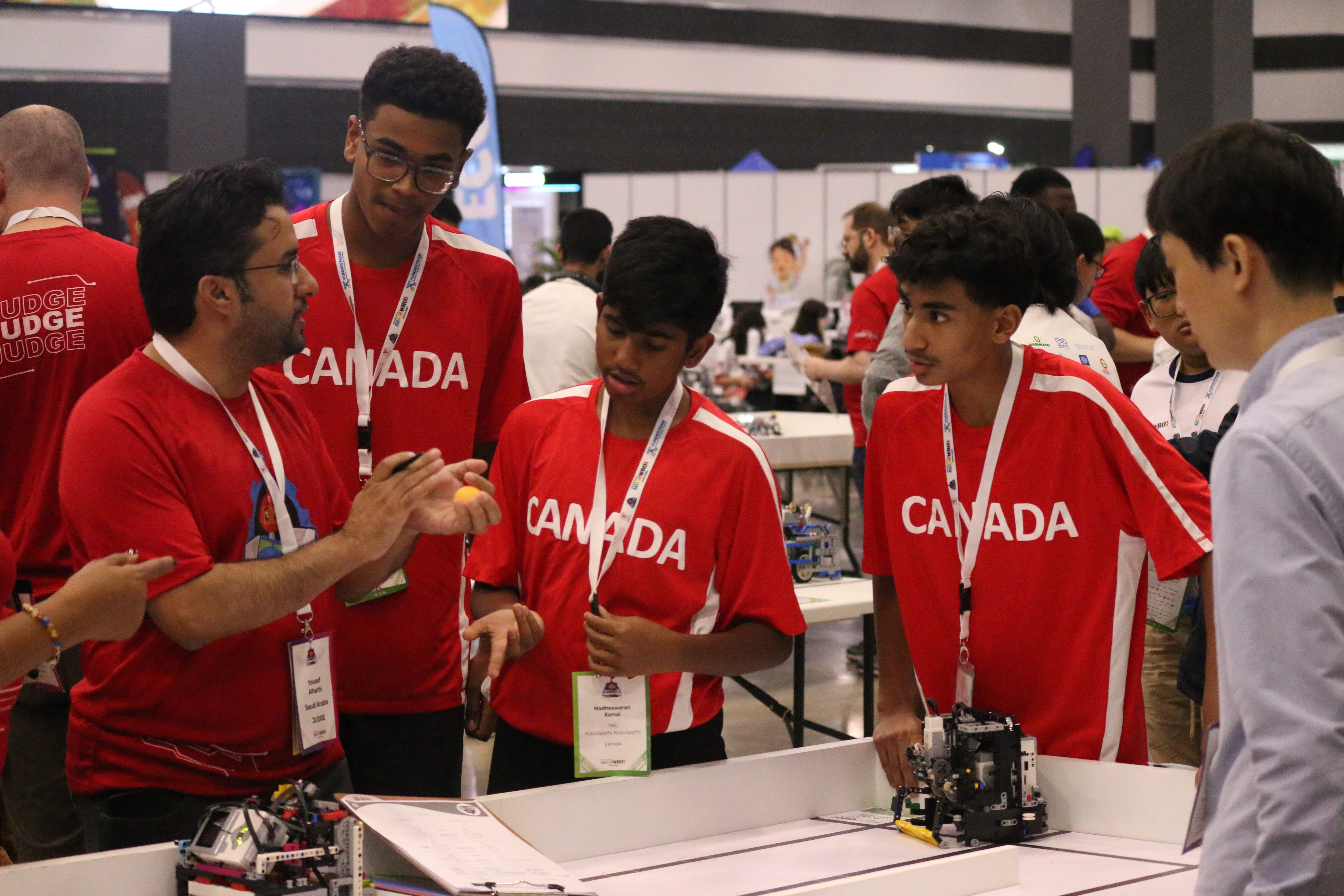
This just left our Future Innovators team of Dave Grewal and Shourya Sheth. If you’ve been keeping along with our blog, you know that they had designed a robot to help combat biofouling on cargo ships. The robot would scale the sides of the cargo ships, removing biomaterial. This, in turn, would help reduce the spread of invasive species and improve fuel efficiency on the vessel. The idea is incredible on its own, but the competition isn’t just judged on idea alone. The team also must effectively communicate the idea, present confidently, and push the benefits of their innovative project.
The team had practiced their pitch numerous times by this point. They even had hands-on experience presenting at an Oakville fair that Zebra attended, as well as at a celebration event for MPPs Nina Tangri and Deepak Anand. They were confident. They were ready.
As the competition kicked off, the judges milled about from project to project, assessing and critiquing. After a table was judged, other teams would flood the table, asking questions about the judges, what they were looking for, how hard their questions would be, etc. But our team was confident in their position and patiently waited at their table for judgement. When asked about the experience Dave noted, “Throughout the first day of the competition, I felt confident during three of the judging sessions…although there lingered a slight nervousness and intimidation from the impressive projects presented by others.”
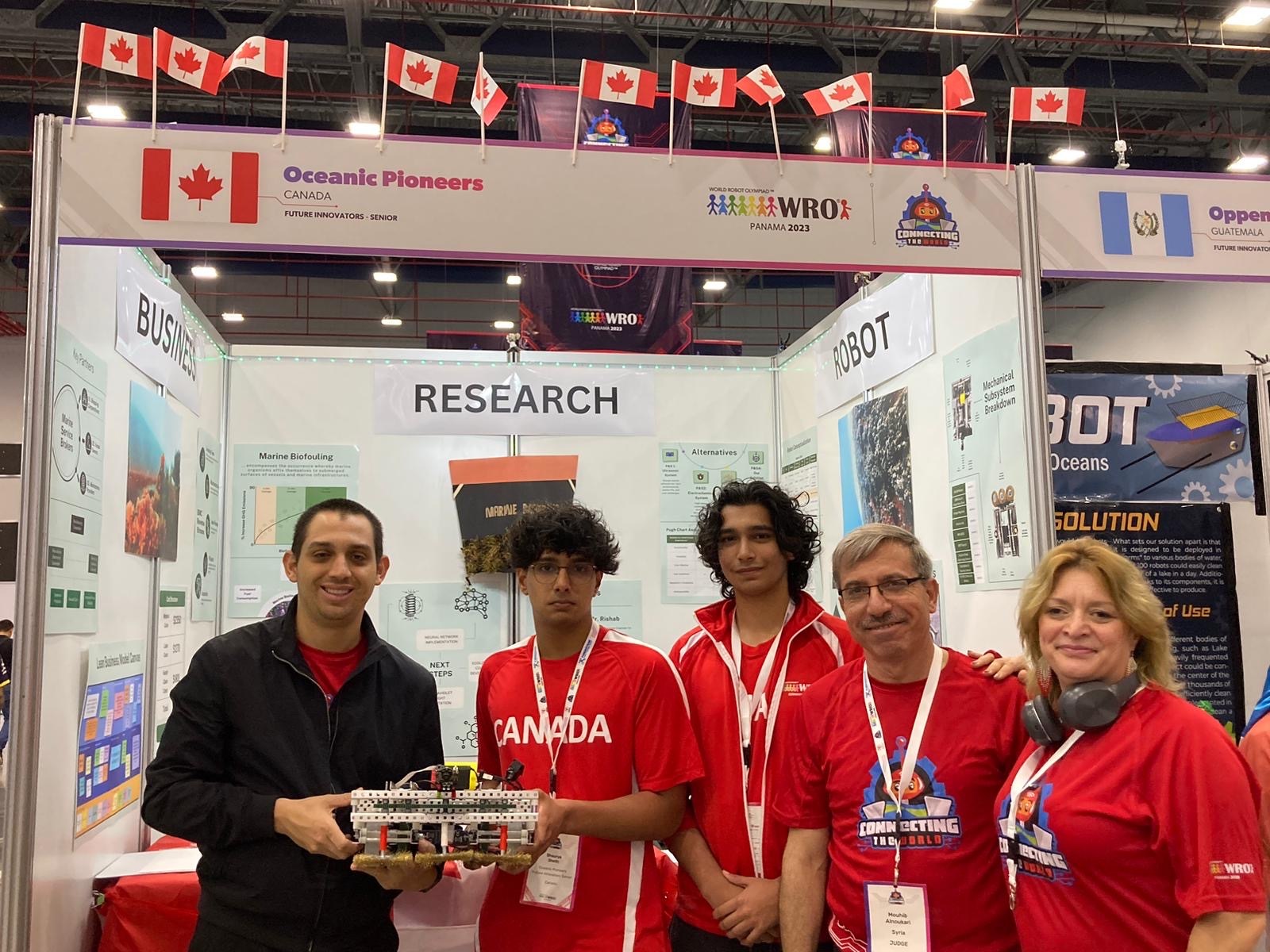
The first pair of judges came and went. They were stoic, giving away nothing of their feelings about our Future Innovators’ idea. The only feedback came in the form of more judgement. Another pair of judges. Another set of hard questions. Scribbling on paper. A thank you. Moving on.
Day one finished, and our team was still in the running. They were ecstatic, proud of their ability to articulate themselves and their idea so thoroughly. As day two started, they put on their finest. Once more, judges passed through the booths, with tougher and tougher questions, testing the intricate knowledge of the teams. However, for the first part of the day, the judges steered clear of our competitors booths. Shourya said, “I was disappointed when we didn’t have callbacks because we felt our presentations went really well.” But as the day rolled on, eventually, the judges turned their sights on our competitors. Dave commented, “The unexpected turn of events heightened my confidence.” Steeled by their previous experiences, our team effortlessly answered any curveballs that came at them, demonstrating that they had thoroughly thought out their innovative design.
And then it was over. After 8 relentless rounds of judging, the day finished, and the winners would be decided after a long round of deliberation. They packed up their project and waited for several agonizing hours to see if their hard work prevailed.
And we are proud to say that it did.
When the winners were announced, our team was honoured to hear that they placed Second in the Future Innovators—Senior category with their project on biofouling. History was made, as they stepped up to the podium to receive their award, as this is the first time Canada has ever made it into the top 3 since 2014, when Canada first joined WRO. Holding up the Canadian flag, Dave and Shourya stood proud of their accomplishments, excited to have written a paragraph in history.
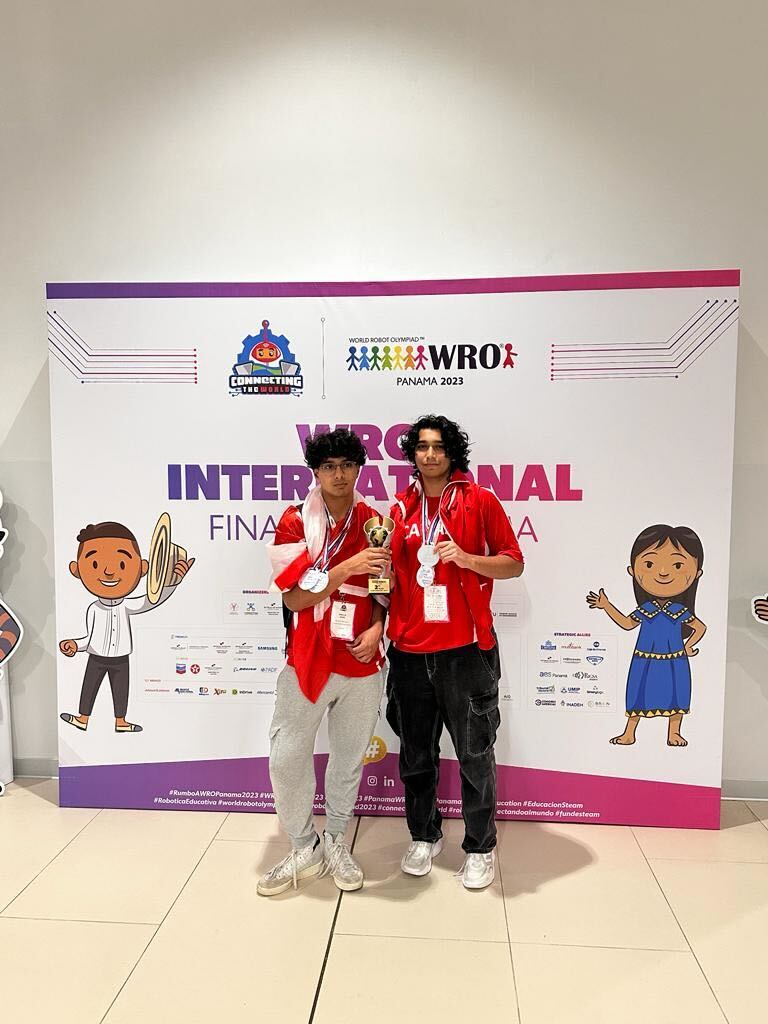
When asked how they felt about their win, Shourya said, “The most rewarding part of the competition was learning how to build more complicated and industrial robots aside from Lego, which could actually be used to benefit the world.” Dave commented, “The most rewarding aspect was establishing friendships and connections with participants from various countries. I gained valuable insights from diverse perspectives, including those of fellow competitors, investors, coaches, and representatives from other nations.”
If you get a chance, ask Shourya and David about their innovative project, as well as their experiences at WRO. They would be more than happy to share.
With the WRO Internationals over, we are proud to say that we successfully represented Canada on the world stage. Like our students, we learned a lot from the competition, and now know what we need to teach our students to better prepare them for future competitions. We will be ready for the next WRO competition, and we hope you will be there alongside us, cheering on the students once more. Thank you for reading!
